MNG81001 Management Communication: Virtual Team Management Practices
VerifiedAdded on 2023/06/12
|8
|435
|106
Report
AI Summary
This report provides recommendations for effective virtual team management, focusing on three key practices: establishing ground rules, ensuring effective information exchange, and implementing a consistent meeting schedule. For establishing ground rules, the report suggests that team leaders and managers should collaboratively establish rules and ensure that all members abide by them. For effective information exchange, the report recommends using advanced technologies for virtual communication and providing training to employees to facilitate proper communication. For a consistent meeting schedule, the report advises ensuring that all employees are available during meetings and informing them well in advance. The report references academic articles to support these recommendations, emphasizing the importance of these practices for successful virtual team performance.
1 out of 8
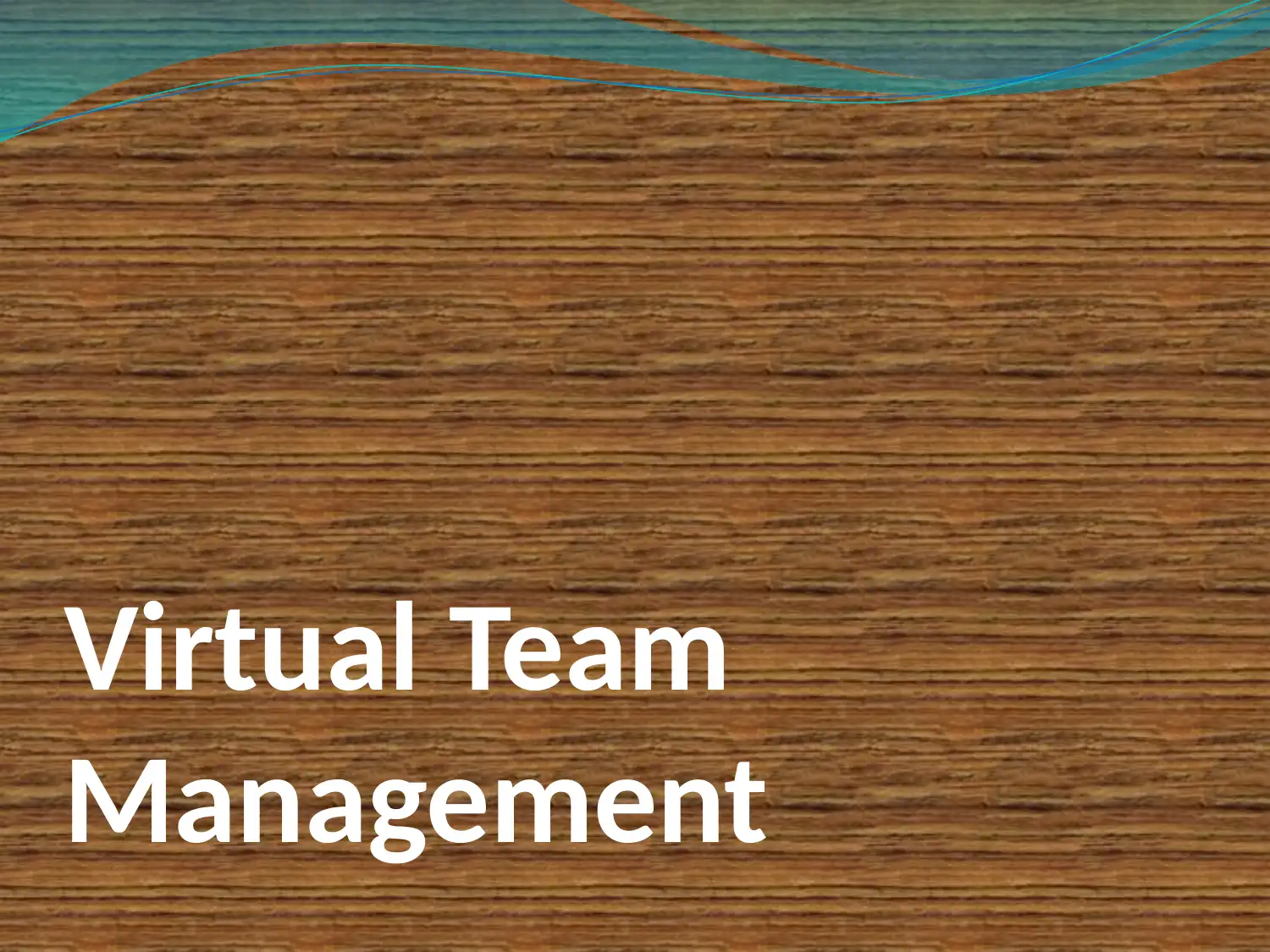
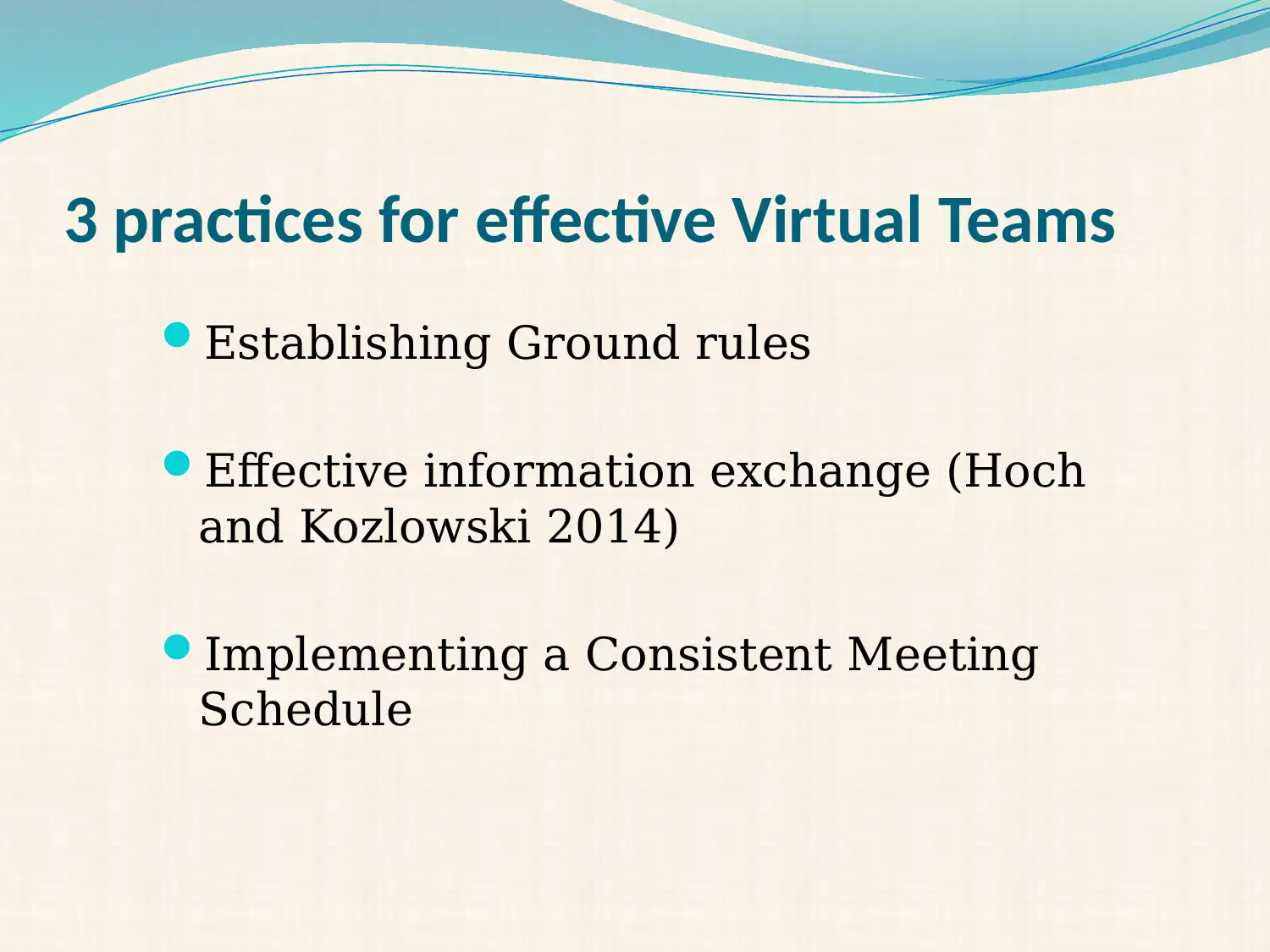
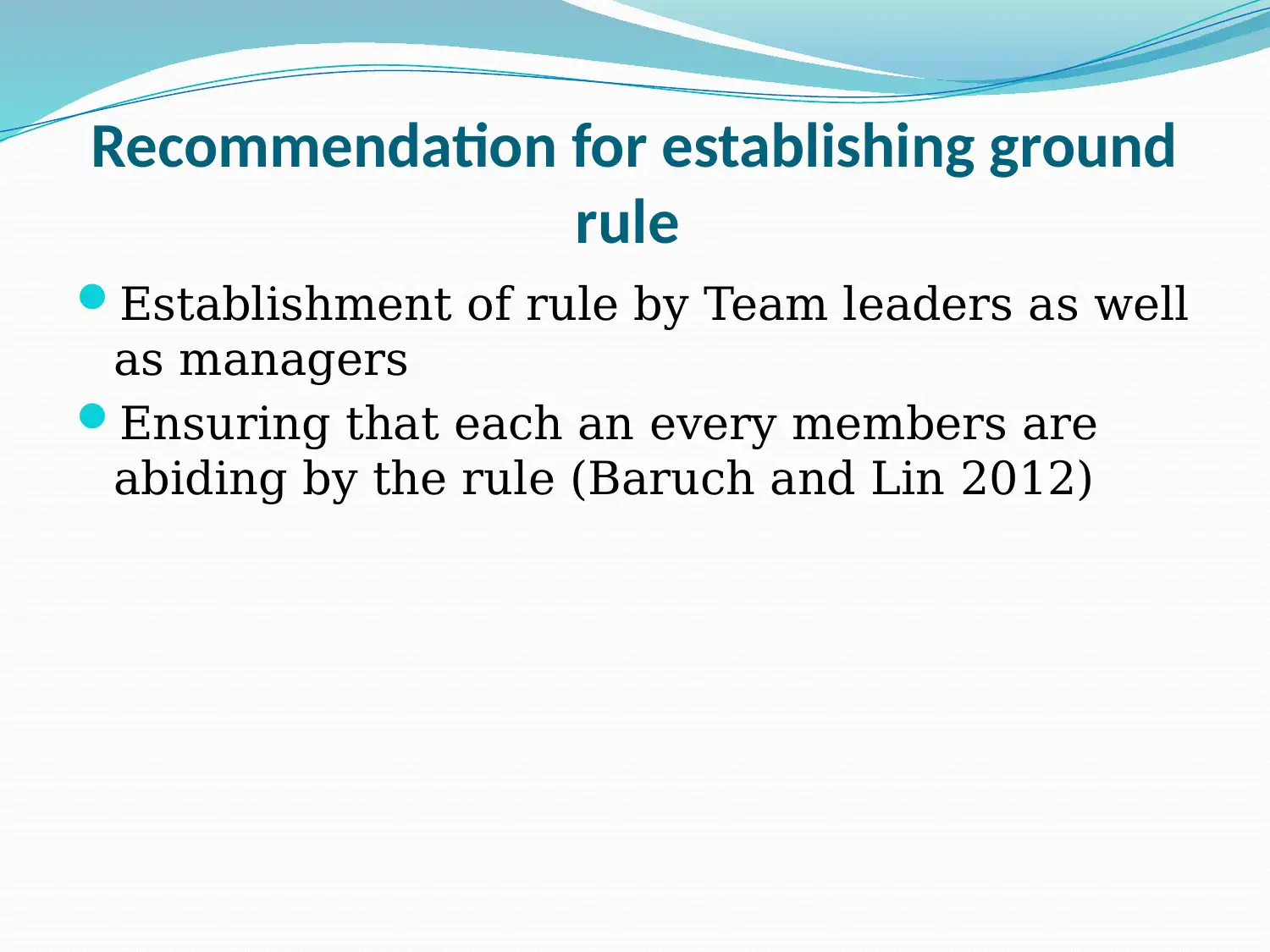

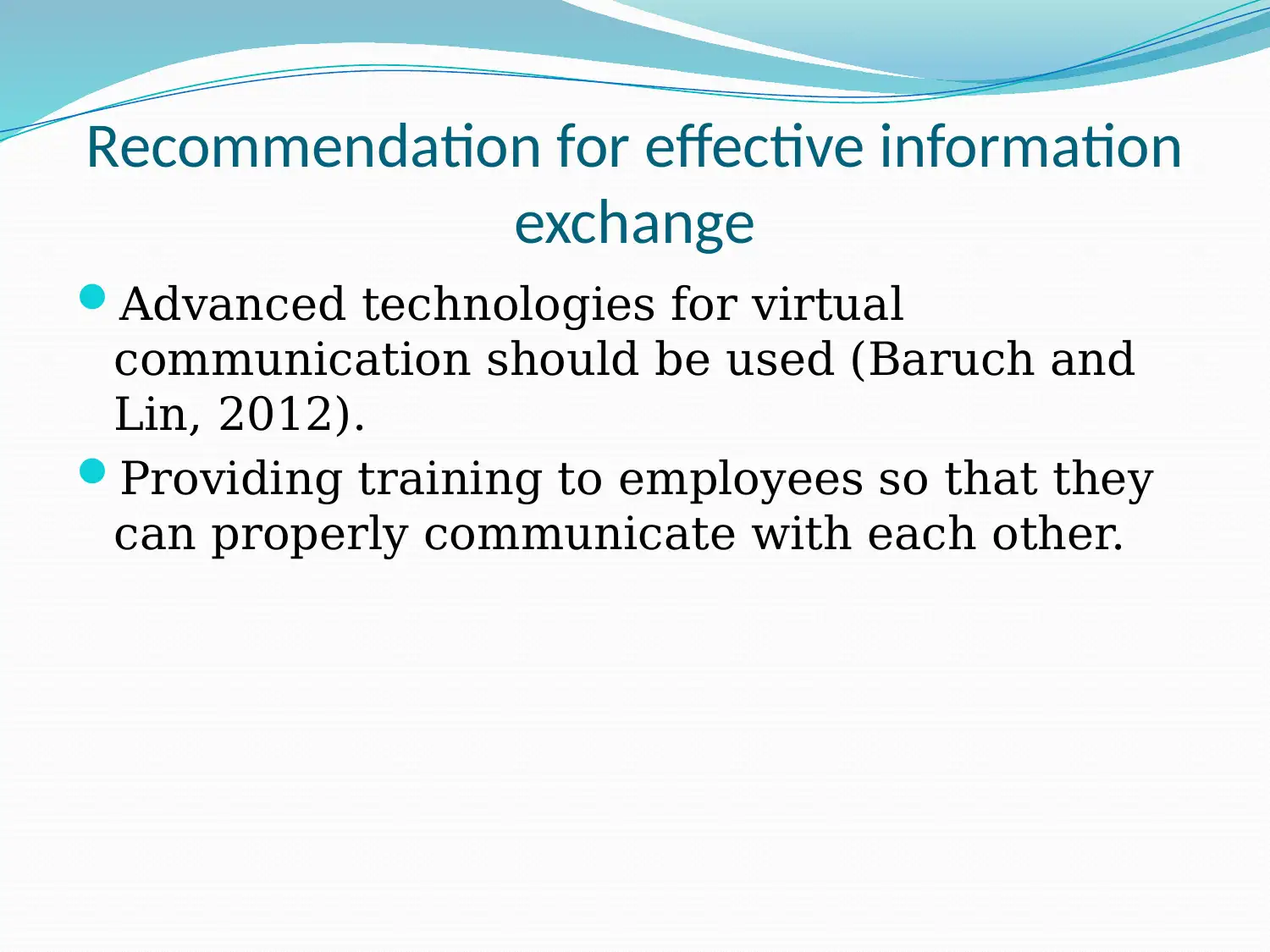
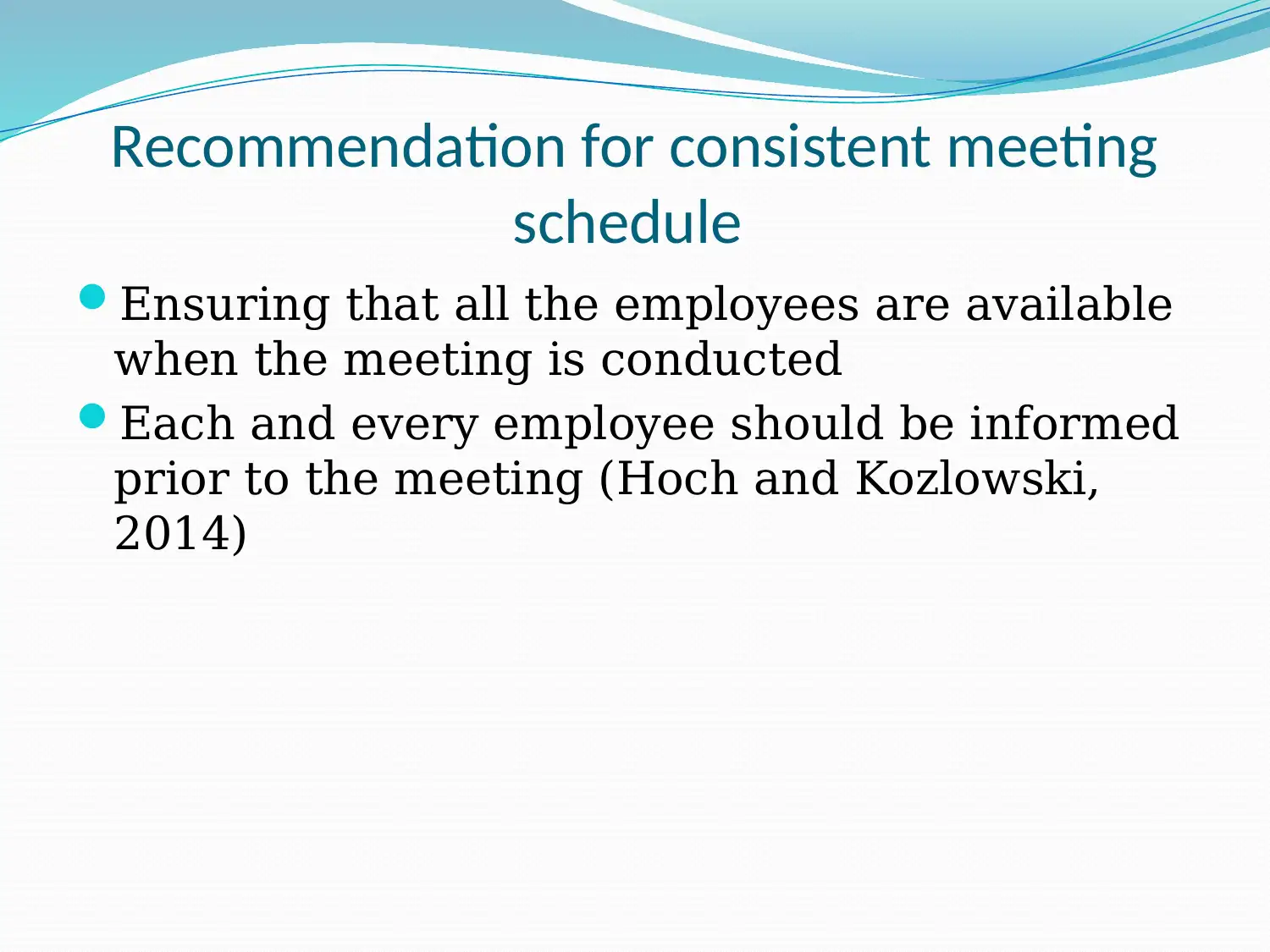
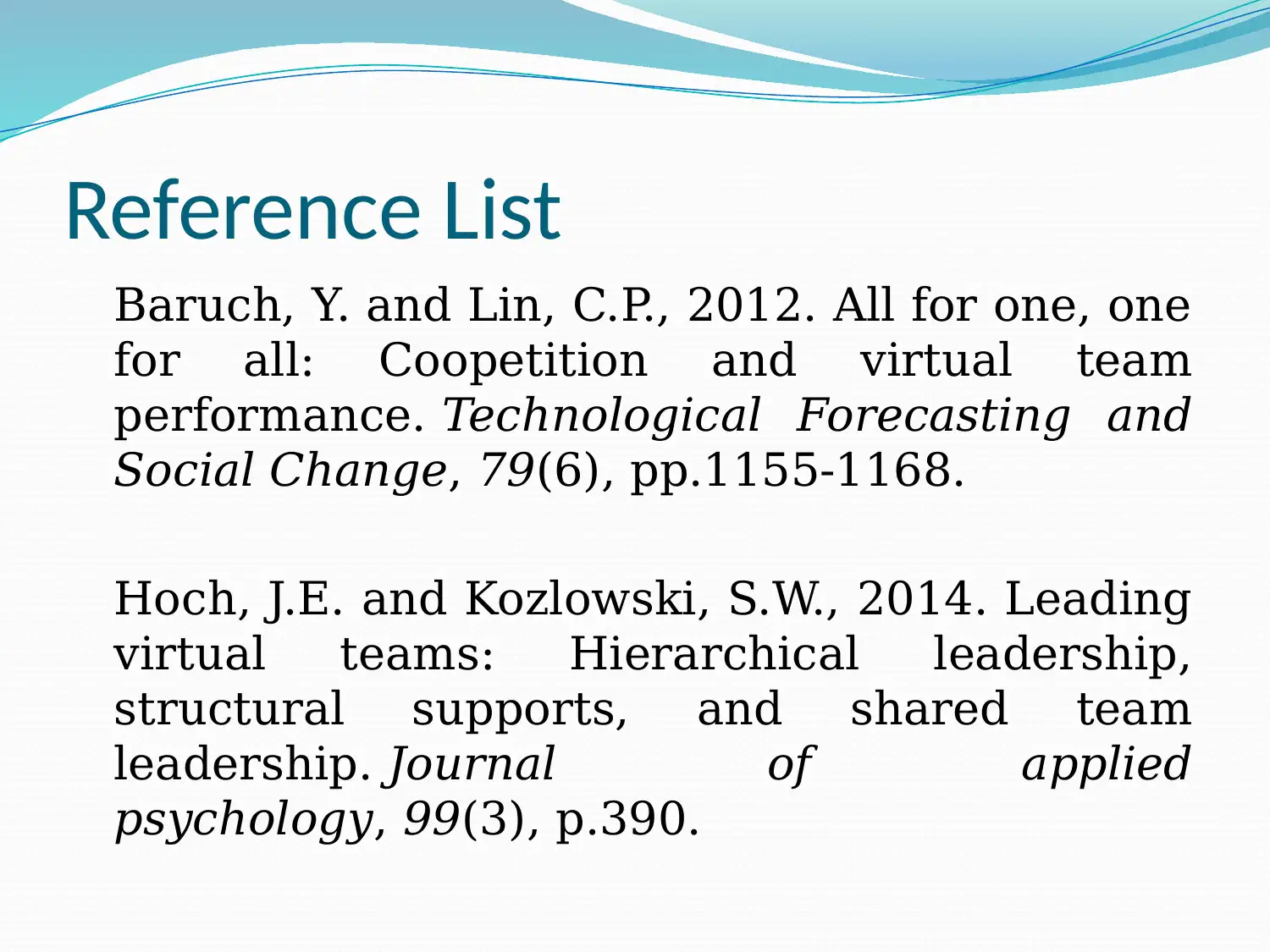
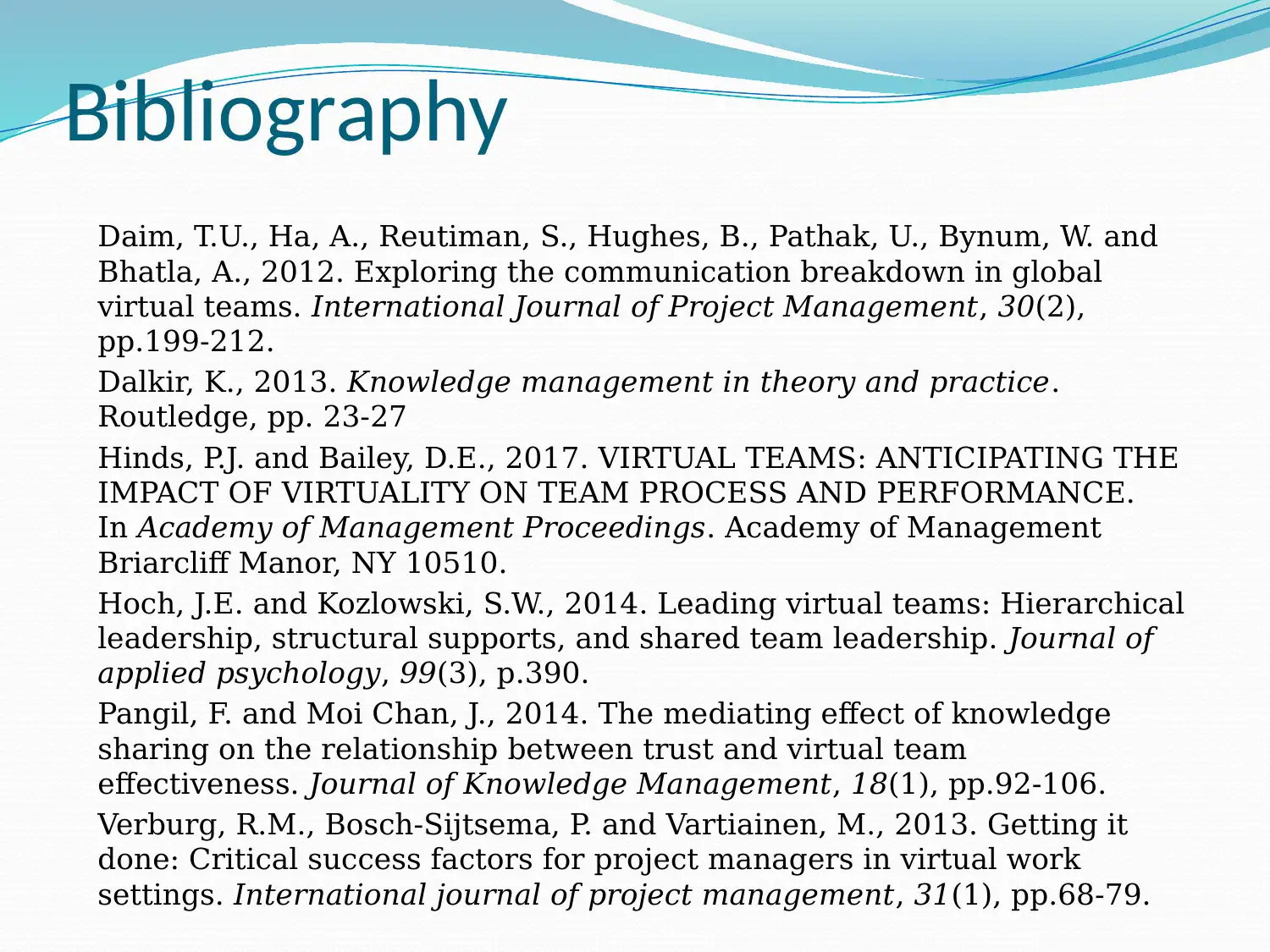





![[object Object]](/_next/static/media/star-bottom.7253800d.svg)